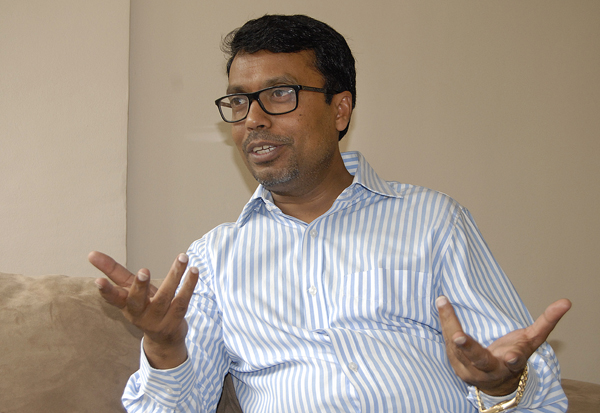FNCCI warns of deepening crisis
Tanahun, December 26
The Federation of Nepalese Chambers of Commerce and Industry (FNCCI) — the largest umbrella body of private sector organisations in the country — has warned that all industries will be forced to pull down their shutters if the current crisis brought on by the Tarai protest prolongs.
“If the current situation facing the country continues for a longer period, all industries will be forced to close,” said FNCCI President Pashupati Murarka while addressing the inaugural session of the 30th annual general meeting of FNCCI-Tanahun Chapter today.
Alleging government’s incompetence in handling the deteriorating condition in the country, Murarka opined the current situation is the result of anarchy brought on by the political parties.
“Businesspeople are willing to pay higher taxes, but the government should create a conducive environment for the same,” he said.
Stating that the government has lost Rs 80 billion in revenue in the last four months, the FNCCI president further claimed that businesspeople are being accused of indulging and promoting black-marketing. “If any entrepreneur is found to be engaged in such illegal and unethical activities, the federation will not support such businesspersons,” he clarified.
Expressing frustration over the private sector being victimised irrespective of which political party came to power, he further said that the hopes of the business community that the promulgation of the constitution would usher in an era of peace, stability and prosperity in the country had been dashed. He appealed to all political parties to come together for economic development of the country.
Meanwhile, Bhawani Rana, senior vice president of FNCCI, informed that 2,200 factories have been closed, over 200,000 people have been rendered jobless and around two million people have been pushed below the poverty line owing to the Tarai unrest.
Asserting women’s crucial role in economic reforms, she said the country has immense untapped potential in sectors such as agriculture, tourism and hydropower, among others, to improve the country’s economy.
Other speakers in the programme stressed on the need for all to do their bit to lead the country towards economic prosperity.






